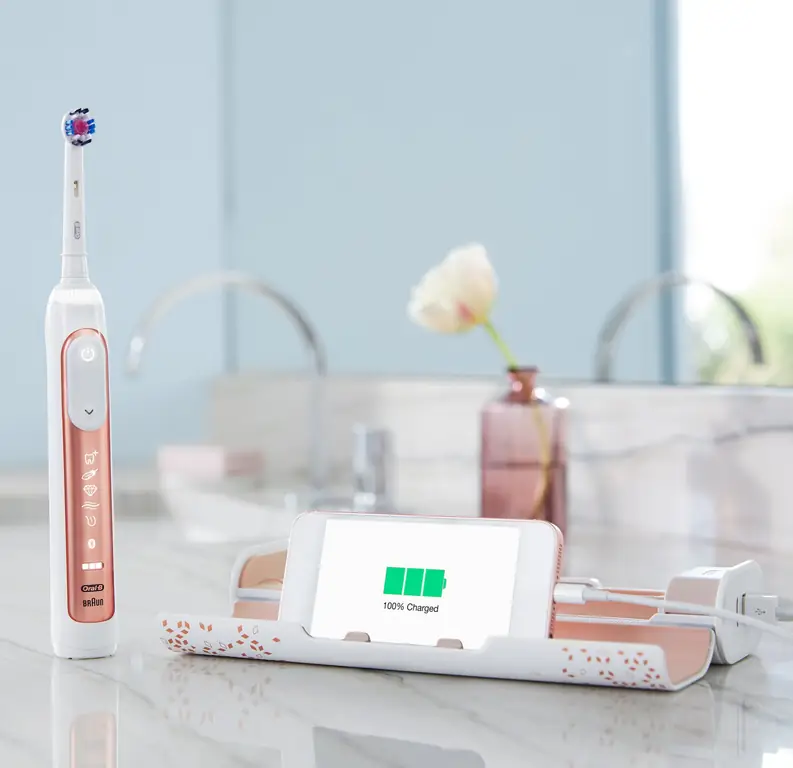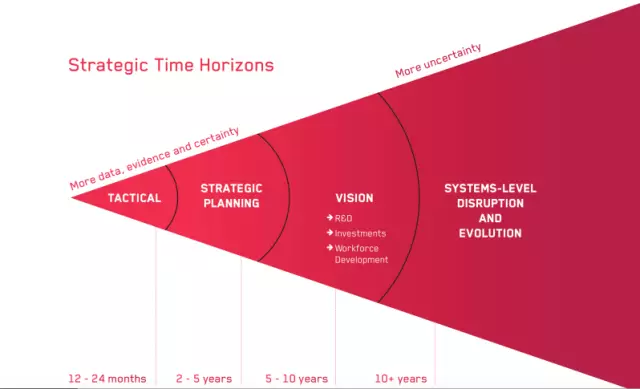
Table of contents:
- Author Bailey Albertson albertson@usefultipsdiy.com.
- Public 2023-12-17 12:53.
- Last modified 2025-01-23 12:41.
True or myth? A professional look at electric toothbrushes

Inna Virabova, President of the International Dental Association (IDA), Pediatric Dentist-Surgeon, Oral-B and Blend-a-med expert
Working as a dentist, I very often come across questions from patients about the need to use an electric toothbrush, and most importantly, its safety. Most often, of course, the question comes from the mouth of caring parents who pay attention to the oral cavity of their child. Most of the information about oral hygiene products people get from the media and the web. Active mothers on all kinds of forums share their experience and express their own assumptions. Let's look objectively and try to understand the effectiveness of electric brushes, as well as refute or confirm a number of existing myths.
Seals are believed to fall out after using the electric brush. Of course, this is a myth. All high-quality seals are installed strictly according to a specific protocol and are durable. The mechanical action of an electric brush without any aggressive component in the form of ultrasound or other factors is not capable of chipping the filling or harming the teeth. If in doubt, it is best to use a brush with a reciprocating-rotating technology - with it, you are guaranteed high-quality cleaning without harm to dental structures. But this is really a good excuse for an incompetent professional who placed the seal.

The next myth goes like this: "Electric toothbrushes are prohibited for pregnant women." Here it is necessary to clarify: depending on what type of electric brushes we are talking about. Ultrasound - yes, indeed, it is not worth using during pregnancy, since ultrasound in a toothbrush can have an effect on the entire body. Sound problems should not arise, but it is better to additionally consult with your doctor. But brushes with a reciprocating rotational technology are one hundred percent safe, since they operate only mechanically and only in the oral cavity. They are not only not prohibited, but rather recommended. I confess that for me, as a dentist, brushes with a reciprocating rotation technology are the best electric brushes, since they are both effective and safe, and have practically no contraindications. The only contraindication for their use is a complete ban on any mechanical effect on the teeth and gums. My favorite is the Oral-B GENIUS model with brush detection sensors. Another big plus is that these brushes have many different models for both adults and children.

In an "interesting" position in women, the hormonal background changes, which directly affects the composition of saliva, making it more viscous. In addition, the general condition of the body becomes more susceptible to the effects of the external environment. Pregnant women often develop gum disease (gingivitis), which can bring discomfort to the expectant mother. That is why it is better to start using an electric brush even before pregnancy, in order to protect yourself from the formation of an increased amount of plaque. As for the attachments, the gentle cleaning attachment comes in handy here, which delicately cleans the enamel without causing discomfort.
How to choose an electric toothbrush for a child? Deeper into the study of the question of how to choose a toothbrush for your baby, you will surely come across information that an electric brush destroys milk teeth and almost leads to their loss. Also a myth if we are talking about a brush with a reciprocating rotary technology. Its mechanism of action is as follows: the brush head rotates from side to side and pulsates, loosening and sweeping away plaque. In children's models, for a more gentle effect, there is no pulsation and the reciprocating and rotating movements themselves are slower. The head of these brushes - both in adults and in children - is small and round, easily reaches the back teeth, cleans fissures, lingual surfaces. The brush with reciprocating rotary technology does not have any vibrations and other physical phenomena that lead to loosening of the teeth. Thanks to a small working part and thin atraumatic bristles, the electric brush with a reciprocating-rotating technology penetrates into the most difficult-to-reach places, cleans interdental spaces and prevents the development of caries both on the chewing surfaces and on the contact surfaces.

With a bold design and a timer that keeps track of how long you brush your teeth, like the Oral-B Stages Power, you can make your oral care fun and rewarding. Moreover, the body of the children's electric brush is covered with hypoallergenic rubber, which is conveniently held by the child's hand and does not jump out of wet handles.
Returning to adults, you can recall another myth, for example, that when bleeding gums occur, you cannot use an electric brush. First, by regularly using an electric brush, you are unlikely to encounter this problem. After all, the main cause of bleeding is poor hygiene, which leads to the accumulation of plaque in the cervical (transition of the tooth to the gum) area. Getting under the gums and accumulating in this area, plaque leads to an inflammatory process of the gums and, as a result, to their bleeding while brushing teeth or eating.
To get rid of this, it is recommended to correct individual oral hygiene, that is, choose the right brush and remove plaque. In this case, it should be noted that the bristles of an electric brush with a reciprocating-rotational technology, having rounded tips, completely painlessly penetrate into the cervical region, sweeping away the accumulated plaque. This brush function is also important for adolescents and adults undergoing orthodontic treatment. If you have braces in your mouth, your teeth need even more care, but it becomes more difficult to brush your teeth. The small head of the electric brush with reciprocating rotational technology and a special attachment help to deal with this problem by cleaning the enamel around each bracket, thereby preventing plaque from entering under the gums and accumulating on the surface of the teeth.

A very popular myth: "If you smoke, you need a hard bristled brush and an electric brush won't save you!" Absolutely not. To begin with, I would like to note that stiff bristles are not needed by anyone. After all, its aggressive effect on the teeth in contact with hard tissues leads to their abrasion, which means the appearance of increased sensitivity of the teeth. In the future, this can cause enamel chips, cracks and the need for long-term treatment. As for the gums, using such a brush can cause harm by scratching and irritating the gums with stiff bristles. This is why electric brushes do not contain hard fibers.
Another myth says that the electric brush can only be used once a week by both adults and children. But here's the question: if a brush effectively removes plaque and takes care of the gums, why limit its use? That's right, there are no reasons for this at all! Electric brushes with a reciprocating rotation technology are recommended for daily use, including for children from 3 years old.
For the most part, the most popular electric brush rumors are just myths. I wish your teeth health, which means you should definitely pay attention to the best toothbrush - an electric one!
Recommended:
How To Choose A Hood For The Kitchen - In Terms Of Power And Other Parameters, What To Look For When Buying A Built-in And Built-in, For A Gas And Electric Stove, Professional Advi

What parameters should you pay attention to when choosing a cooker hood for the kitchen: types of devices, how much the prices differ. Model overview and manufacturer information
Why You Can't Boil Water Twice: A Scientific Fact Or A Myth

Is it worth boiling water again. What happens to water with repeated boiling. How long does it take to boil water
Why You Can't Jump In The Elevator: The Consequences, Which One Is A Myth

The consequences of jumping in an elevator. Is it worth it. Truth and fiction
Why It Is Impossible To Warm Up A Car Engine In Winter: Is It True Or A Myth, What Can Threaten, Is There Any Harm To The Car

Is it worth warming up a car engine in winter? What are the supporters of warming up guided by What the opponents stand for
Why Christians Shouldn't Celebrate New Year: True Or Myth

How the Orthodox Church relates to the celebration of the New Year. How believers should celebrate the New Year. As the Church members celebrate the New Year. Councils of priests
